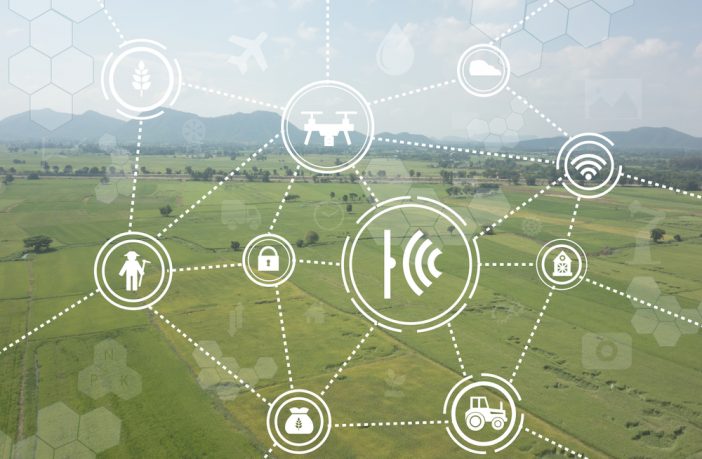A new project has been launched to examine how the Internet of Things (IoT) could transform the food industry through innovations such as ‘smart’ cooking appliances, data-driven supermarket refrigeration networks and enhanced food traceability systems.
The Internet of Food Things (IoFT) Network Plus will bring together data and computer scientists, chemists, and economists to investigate how artificial intelligence, data analytics and emerging technologies can enhance the digitalisation of the UK food supply chain.
The Open University will work with partners at the universities of Lincoln, East Anglia, Southampton and Surrey, to examine the application of the IoT in connected homes of the future – for example smart refrigerators which trigger a grocery order when food items run low, or cooking devices which could help us live healthier lives.
It will also examine the traceability of food, and how machine learning and artificial intelligence could be utilised to extract value from the vast amounts of data available across the whole food supply chain, improving efficiency and reducing food waste.
Support for Business and Research
Businesses and researchers nationally will be able to participate in workshops, run annual conferences to share best practice across the sector, and bid for funding for pilot studies, projects, and reviews. Collectively these initiatives, which will run until May 2021, will contribute to progressing the digitisation of food manufacturing in the UK.
The project is funded by a £1.14 million grant from the Engineering and Physical Sciences Research Council (EPSRC) to nurture and grow the UK’s food manufacturing digital economy. The food supply chain from farm to consumer generates £112bn GVA per year and employs 3.9 million people, but it is operating against a backdrop of an increasingly competitive environment.
Professor Simon Pearson, Director of the Lincoln Institute for Agri-food Technology (LIAT) at the University of Lincoln, said:
“It has never been more vital that we find ways to work more efficiently, saving money for producers, manufactures, retailers, and consumers.
There are some other stark figures relating to the sector which makes this network and its goals even more vital: each year there are around a million cases of food poisoning every year costing £1.5bn; food generates up to 30 percent of the UK’s road freight; and 10 million tons of food is wasted each year, generating 20 million tons of CO2 of greenhouse gas emissions. We want to examine how we can improve these issues, which impact us socially and environmentally.”
Professor Andrea Zisman, Professor of Computing at the Open University said:
“Digital technology has the potential to transform the food chain. Technologies such as software engineering and artificial intelligence can be used to reduce food waste by optimising the entire supply chain from manufacturer to consumer, to support food outbreaks by automatically tracing the food supply chain, to assist consumer use of food assisted by digital labelling. Currently we are only scratching the surface of what these technologies can do for the food industry. This project brings academia and industry together to examine the opportunities.”
The IoFT network is being set up to specifically engage with the whole food and digital innovation chain. It will multiply impact by including interdisciplinary contributions from food science and technology practitioners, policy makers, engineers, management specialists and colleagues in social and behavioural sciences. The inclusion of food retailers like Tesco within the consortium provides access to unrivalled data sets demonstrating behaviours.
Project Contributors
Alongside academic expertise, the project will involve industry specialists from a range of areas, such as global engineering giant Siemens, machine management firm IMS-Evolve, the rural agricultural consultancy Collison and Associates, and the High Value Manufacturing Catapult. Regulators such as the Food Standards Agency and GS1, an international agency that sets data standards for bar codes will also have input, and consumers will be engaged through representative bodies.



